




When it comes to doing laundry, choosing the right detergent is crucial. Not only does it affect the cleanliness and freshness of your clothes, but it can also have an impact on your health and the environment. One important decision you need to make is whether to use bio or non-bio laundry detergent. Understanding the differences between these two types of detergent can help you make an informed choice that suits your needs and preferences.
Bio laundry detergent, also known as biological detergent, contains enzymes that break down dirt and stains on clothes. These enzymes are naturally occurring proteins that help to remove organic matter, such as food stains, grass, and blood. The addition of enzymes makes bio detergent more effective in removing tough stains, especially in lower temperature washes. However, some people with sensitive skin or allergies may find bio detergent irritating.
Non-bio laundry detergent, on the other hand, does not contain enzymes. It usually utilizes chemical-based ingredients, such as surfactants, to lift dirt and stains from clothes. Non-bio detergent is generally gentler on the skin, making it suitable for those with sensitive skin or allergies. However, it may not be as effective at removing tough stains as bio detergent, especially in lower temperature washes.
Ultimately, the choice between bio and non-bio laundry detergent depends on your personal needs and preferences. If you have tough stains to remove and don’t have any skin sensitivities or allergies, bio detergent can provide a more effective clean. Conversely, if you have sensitive skin or allergies, non-bio detergent may be a better option to avoid any potential irritation. It’s always a good idea to read the labels and follow the instructions provided by the manufacturer to ensure the best results for your laundry.
Understanding the Basics

When it comes to choosing laundry detergent, one of the main decisions you’ll need to make is whether to go for bio or non-bio. Understanding the basics of these two types of laundry detergent can help you make an informed decision.
Bio Laundry Detergent
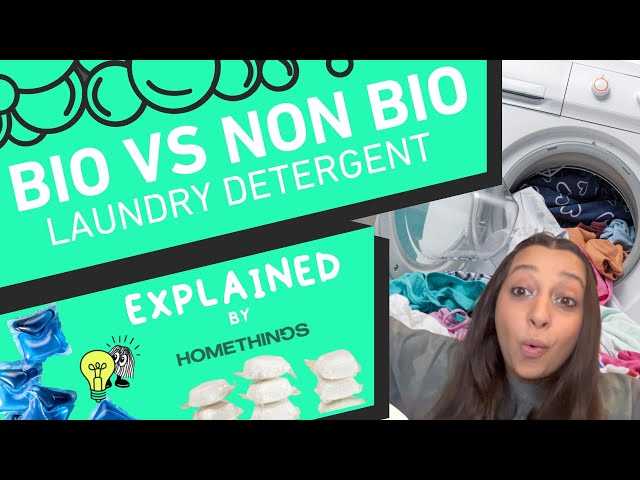
- Bio laundry detergent contains enzymes, which are powerful protein and stain digesters.
- These enzymes help break down tough stains, such as blood, grass, and food.
- They work best at lower temperatures, typically below 40 degrees Celsius.
- Bio laundry detergent is generally considered to be more effective at removing stains than non-bio.
- However, some people may experience skin irritation or allergies to the enzymes in bio detergent.
Non-Bio Laundry Detergent
- Non-bio laundry detergent does not contain enzymes.
- Instead, it relies on other ingredients, such as surfactants, to remove stains and dirt.
- Non-bio detergent is often recommended for people with sensitive skin or allergies, as it is less likely to cause skin irritation.
- It can be used at any temperature, but higher temperatures may be needed to effectively remove tough stains.
- Non-bio laundry detergent may not be as effective as bio at removing certain stains.
It’s important to note that both bio and non-bio laundry detergents are formulated to be effective at cleaning your clothes. The choice between the two ultimately depends on your personal preference, the type of stains you typically encounter, and whether you or your family members have any sensitivities to certain ingredients.
Effectiveness Comparison
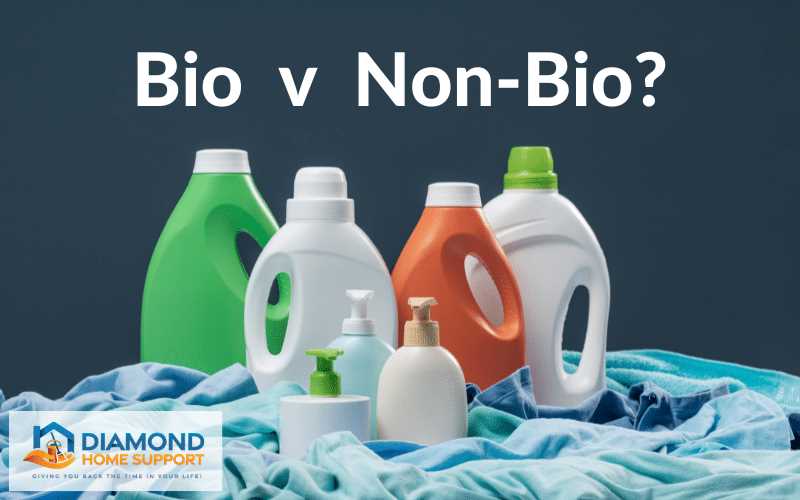
When it comes to the effectiveness of bio and non-bio laundry detergents, there are a few key factors to consider.
Cleaning Power

Both bio and non-bio laundry detergents are designed to remove dirt, stains, and odours from your clothes. However, bio detergents tend to be more effective in breaking down and removing tough stains such as grease, oil, and protein-based stains like blood or grass.
Non-bio detergents, on the other hand, are generally milder and may not be as effective for heavy-duty stain removal. They are more suitable for everyday laundry needs and for individuals with sensitive skin or allergies.
Whitening and Brightening
If you are looking for a detergent that will help keep your whites bright and vibrant, bio detergents are usually the better option. They contain enzymes that can help to lift stains and brighten fabrics, making your whites look cleaner and whiter.
Non-bio detergents may not have the same whitening and brightening effects as bio detergents, but they can still effectively clean and maintain the overall appearance of your clothes.
Gentleness on Fabrics
Non-bio detergents are known for being gentler on fabrics compared to bio detergents. The enzymes found in bio detergents can be harsh on delicate fabrics, causing them to lose their softness and longevity over time.
If you have delicate or expensive clothing items that require special care, opting for a non-bio detergent may be a better choice to ensure the longevity and integrity of your fabrics.
Environmental Impact
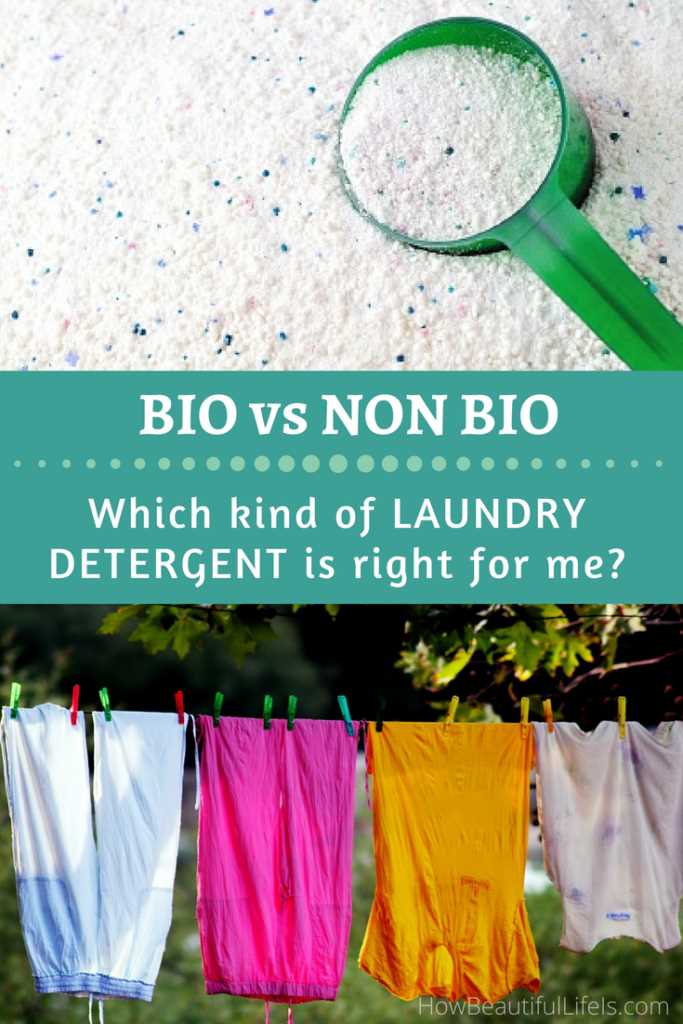
When it comes to the environmental impact, non-bio detergents are generally considered to be more eco-friendly. They often contain fewer chemicals and are less likely to release harmful substances into the environment.
However, bio detergents have come a long way in terms of environmental friendliness, with many brands now offering biodegradable and plant-based options.
Overall Verdict
Both bio and non-bio laundry detergents have their own unique benefits and considerations. If you have tough stains and want your whites to stay bright, bio detergents may be the best choice. On the other hand, if you have sensitive skin, delicate fabrics, or are concerned about the environment, non-bio detergents may be more suitable.
Ultimately, the effectiveness of a laundry detergent will depend on your individual needs and preferences. Experimenting with different brands and types of detergents can help you find the one that works best for you and your laundry needs.
Suitability for Different Fabrics
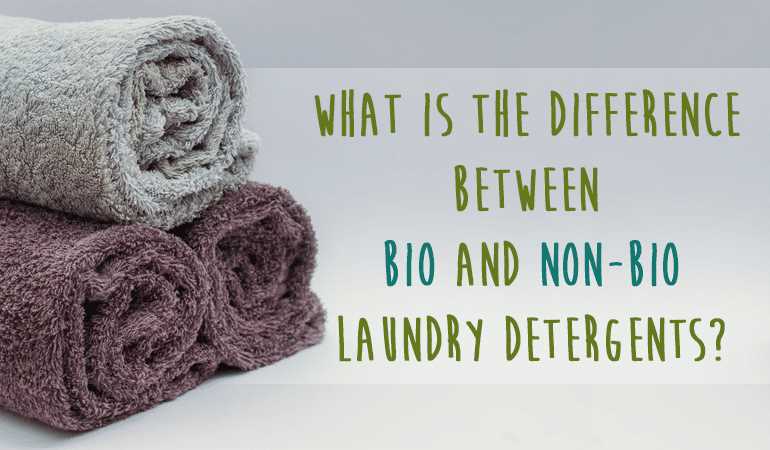
When it comes to choosing between bio and non-bio laundry detergents, another important factor to consider is the suitability for different types of fabrics. Different fabrics have different cleaning needs, and using the wrong detergent can lead to damage or diminished lifespan of your clothes.
Bio Laundry Detergent:
- Due to the enzymes and additives present in bio laundry detergents, they are particularly effective at breaking down tough stains and removing dirt and grime from heavily soiled fabrics.
- Bio laundry detergents are generally safe to use on most types of fabrics, including cotton, polyester, nylon, and blends. However, it is always important to check the care label of your clothing to ensure compatibility.
- For delicate fabrics such as silk or wool, it is recommended to use a bio laundry detergent that is specifically formulated for these types of fabrics.
Non-Bio Laundry Detergent:
- Non-bio laundry detergents are generally milder and more gentle on fabrics compared to bio detergents. They do not contain enzymes and are therefore less likely to cause any damage or irritation to sensitive skin.
- Non-bio detergents are suitable for use on all types of fabrics, including those that require more delicate care, such as silk, wool, and cashmere.
- If you have sensitive skin or suffer from allergies, using a non-bio laundry detergent is recommended to minimize the risk of irritation.
Summary:
| Bio Laundry Detergent | Non-Bio Laundry Detergent |
|---|---|
| Effective for tough stains and heavily soiled fabrics | Milder and more gentle on fabrics |
| Suitable for most fabrics, but check care labels for delicate fabrics | Suitable for all types of fabrics, including delicate ones like silk and wool |
| May not be suitable for those with sensitive skin or allergies | Recommended for those with sensitive skin or allergies |
Environmental Impact Analysis
The environmental impact of laundry detergent is an important consideration in choosing between bio and non-bio options. Both types of detergent can have an impact on the environment, but the extent of this impact can vary.
Biodegradability
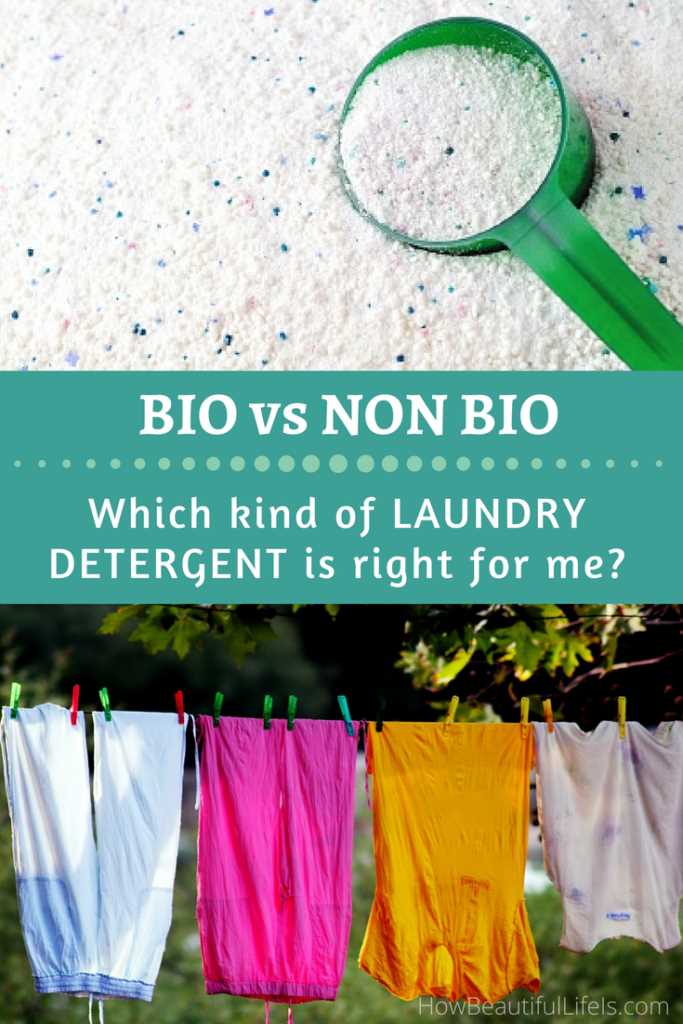
One key difference between bio and non-bio laundry detergents is their biodegradability. Bio detergents are typically more biodegradable, meaning they break down more easily in the environment. This can be beneficial as it reduces the accumulation of chemicals and toxins in soil and water sources.
Non-bio detergents, on the other hand, may contain synthetic compounds that are slower to biodegrade. This can lead to the persistence of these chemicals in the environment, potentially harming ecosystems over time.
Toxicity
The toxicity of laundry detergents can also have an impact on the environment. Bio detergents often use natural ingredients, such as plant-based surfactants and enzymes, that are less harmful to the environment compared to the synthetic chemicals found in non-bio detergents.
Non-bio detergents may contain ingredients like optical brighteners and synthetic fragrances that can be toxic to aquatic life and pollute water sources. These chemicals can have long-lasting impacts on aquatic ecosystems and disrupt the balance of the environment.
Water Consumption
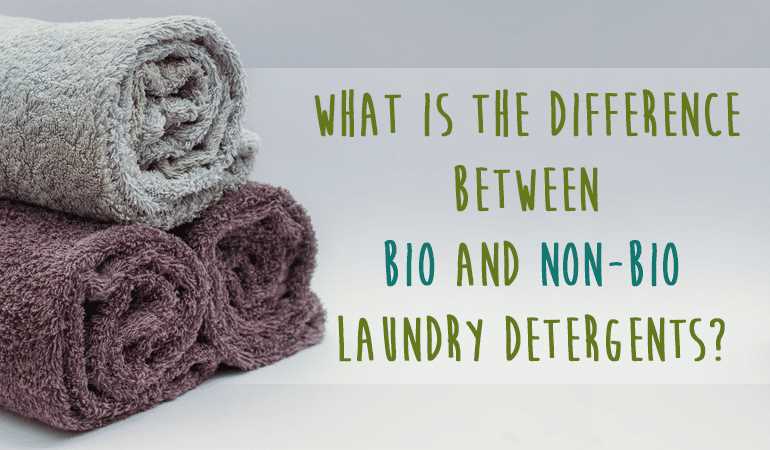
Another factor to consider is the water consumption associated with different types of laundry detergent. Bio detergents often require lower water temperatures for effective cleaning, which can help reduce energy consumption and conserve water.
Non-bio detergents may require higher water temperatures to achieve the same level of cleanliness, resulting in increased energy use and water consumption. This can contribute to water scarcity and put additional strain on natural resources.
Conclusion
When evaluating the environmental impact of laundry detergent, it becomes clear that bio detergents generally have a lower impact compared to non-bio detergents. They are more likely to be biodegradable, less toxic to the environment, and promote water conservation.
Choosing a bio detergent is a more eco-friendly option that can help minimize harm to the environment and contribute to sustainable laundry practices. However, it’s important to consider other factors as well, such as the specific ingredients used in the detergent and any related packaging waste.
Considerations for Allergies and Skin Sensitivity
When it comes to choosing between bio and non-bio laundry detergents, one important factor to consider is allergies and skin sensitivity. Different individuals may have varying levels of sensitivity to certain chemicals or ingredients commonly found in laundry detergents, and this can affect their choice.
Bio Laundry Detergents:
- Bio laundry detergents contain enzymes, which can be more effective in removing tough stains and dirt.
- However, some individuals with allergies or sensitive skin may experience reactions to these enzymes.
- If you have eczema, dermatitis, or other skin conditions, it is recommended to use a non-bio detergent.
Non-Bio Laundry Detergents:
- Non-bio laundry detergents do not contain enzymes, making them less likely to cause skin irritations.
- They are generally considered to be gentler on the skin.
- If you or your family members have sensitive skin or are prone to allergies, non-bio detergents may be a better option.
It’s also worth noting that fragrance can be a potential irritant for individuals with allergies or sensitive skin. Both bio and non-bio detergents are available in fragrance-free options, which may be a better choice for those with sensitivities.
Ultimately, the choice between bio and non-bio laundry detergent for individuals with allergies and skin sensitivity depends on their specific needs and reactions. It may be necessary to test different products to find the one that works best and minimizes any potential irritations.
FAQ
What is the difference between bio and non-bio laundry detergent?
The main difference between bio and non-bio laundry detergent is the inclusion of enzymes in bio detergents. These enzymes help to break down tough stains and remove them more effectively.
Can I use bio laundry detergent on sensitive skin?
It is not recommended to use bio laundry detergent on sensitive skin. The enzymes in bio detergent can be harsh on sensitive skin and may cause irritation or allergic reactions. Non-bio detergent is a better option for those with sensitive skin.
Are bio detergents better at removing stains?
Yes, bio detergents are generally more effective at removing stains compared to non-bio detergents. The enzymes present in bio detergents help to break down and remove tough stains, making them more suitable for heavily soiled items.
What are the environmental impacts of bio and non-bio detergents?
Bio detergents are typically considered to have a higher environmental impact compared to non-bio detergents. The enzymes used in bio detergents can take longer to break down in the environment, potentially causing harm to aquatic life. Non-bio detergents are often considered to be more eco-friendly.












